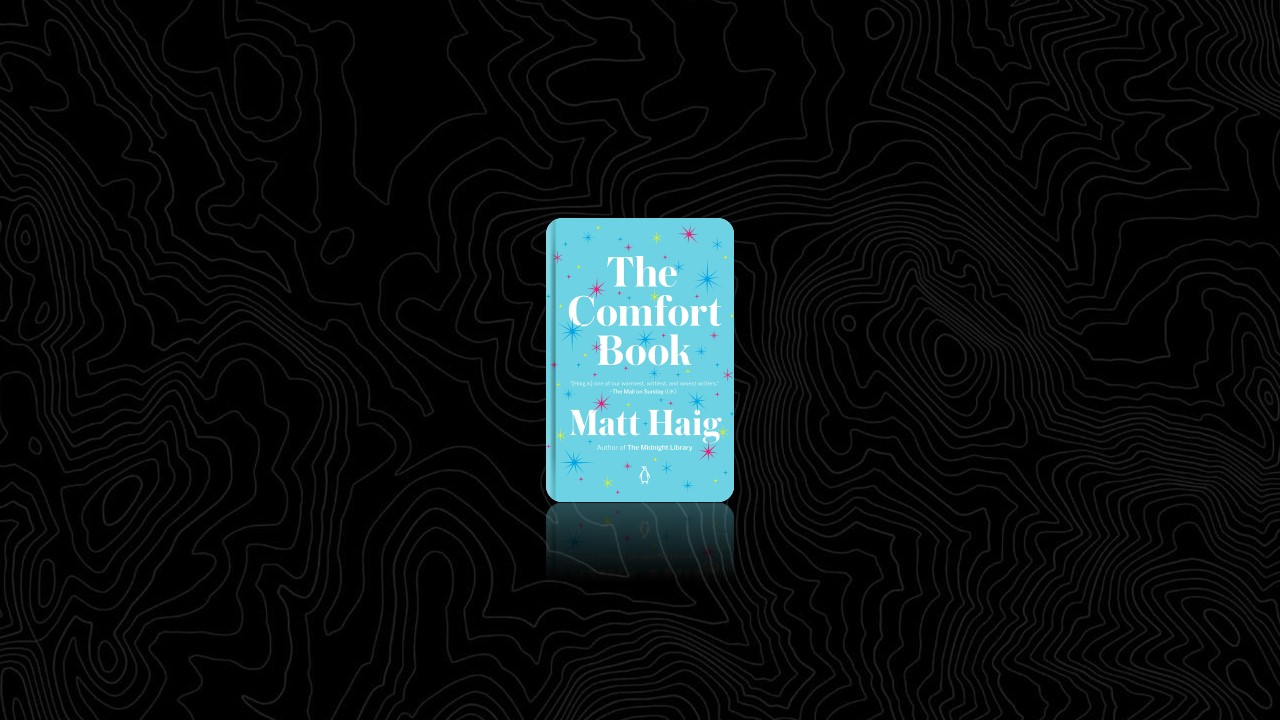You Are the Goal
You don’t have to continually improve yourself to love yourself. Love is not something you deserve only if you reach a goal. The world is one of pressure but don’t let it squeeze your self-compassion. You were born worthy of love and you remain worthy of love. Be kind to yourself.
Nothing is stronger than a small hope that doesn’t give up.
Power
Marcus Aurelius, Roman emperor and Stoic philosopher, thought that if we are distressed about something external, “the pain is not due to the thing itself, but to your estimate of it; and this you have the power to revoke at any moment.”
We can’t just click our fingers and be rid of, say, grief, or the stress of work, or health worries. When we are lost in the forest, our fear might not be directly caused by the forest, or our being lost in said forest, but while we are actively lost in the forest it very much feels like the source of our fear is being lost in the forest.
But it is helpful to remember that our perspective is our world. And our external circumstances don’t need to change in order for our perspective to change. And the forests we find ourselves in are metaphorical, and sometimes we are unable to escape them, but with a change of perspective we can live among the trees.
Change is real
We turn keys all the time. Or rather: time turns keys all the time. Because time means change.
And change is the nature of life. The reason to hope.
Neuroplasticity is the way our brains change their structure according to the things we experience. None of us are the same people we were ten years ago. When we feel or experience terrible things, it is useful to remember that nothing lasts. Perspective shifts. We become different versions of ourselves. The hardest question I have ever been asked is: “How do I stay alive for other people if I have no one?” The answer is that you stay alive for other versions of you. For the people you will meet, yes, sure, but also the people you will be.
Valley
When you feel low, it is important to bear in mind that thoughts inspired by those feelings are not external, objective facts.
People talk of peaks and troughs in relation to mental health. Hills and valleys. And such topographical metaphors make sense. You can definitely feel the steep descents and uphill struggles in life. But it is important to remember the bottom of the valley never has the clearest view. And that sometimes all you need to do in order to rise up again is to keep moving forward.
Sum
We are always bigger than the pain we feel. Always. The pain is not total. When you say “I am in pain,” there is the pain and there is the I but the I is always bigger than the pain. Because the I is there even without the pain, while the pain is only there as a product of that I. And that I will survive and go on to feel other things.
And as soon as we notice all that space inside us, we have a new perspective. Yes, there is room for a lot of pain, but there is room for other things too. And indeed, pain might be a total asshole, but it can inadvertently show us how much space we have inside. It can even expand that space. And enable us to experience the equivalent quantity of joy or hope or love or contentment at some future point in time.
So, in other words, it is important to always realize our own vastness. Our own rooms. We are multiplexes of possibility.
To remember during the bad days
It won’t last.
You have felt other things. You will feel other things again.
Emotions are like weather. They change and shift. Clouds can seem as still as stone. We look at them and hardly notice a change at all. And yet they always move.
The worst part of any experience is the part where you feel like you can’t take it anymore. So, if you feel like you can’t take it anymore, the chances are you are already at the worst point. The only feelings you have left to experience are better than this one.
You are still here. And that is everything.
Rock
The best thing about rock bottom is the rock part. You discover the solid bit of you. The bit that can’t be broken down further. The thing that you might sentimentally call a soul. At our lowest we find the solid ground of our foundation. And we can build ourselves anew.
The gaps of life
If you take objects out of a room, one by one, two things will happen. The first is obvious. You will miss some of the things you have taken away. The second is that you will notice the things that remain more than ever. Your attention will focus. You will be more likely to read the books that are left on the shelves. You will appreciate the remaining chairs more. And if there is a chess board, you are more likely to play chess. When things are taken from us, the stuff that remains has more value. It rises not only in visibility but also intensity. What we lose in breadth we gain in depth.
A little plan
Be curious. Go outside. Get to bed on time. Hydrate. Breathe from the diaphragm. Eat happy. Get a routine baggy enough to live in. Be kind. Accept that not everyone will like you. Appreciate those who do. Don’t be defined. Allow fuck-ups. Want what you already have. Learn to say no to things that get in the way of life. And to say yes to the things that help you live.
Ladders
We are often encouraged to see life as one continual uphill climb. We talk about ladders without even thinking. Career ladders. Property ladders. Of being on the top rung of the ladder. Or the bottom rung of the ladder. We talk of climbing the ladder. We talk of rising up. We talk of uphill struggles. In doing so we visualize life as a kind of vertical race, like we are human skyscrapers reaching for the clouds. And we risk only ever looking above to the future or below to the past and never around at the infinite horizontal landscape of the present. The trouble with ladders is they give you no room to move around. Just room to fall.
Life is not
a ladder to climb
a puzzle to solve
a key to find
a destination to reach
a problem to fix
Life is
“understood backward; but it must be lived forward” (Søren Kierkegaard)


